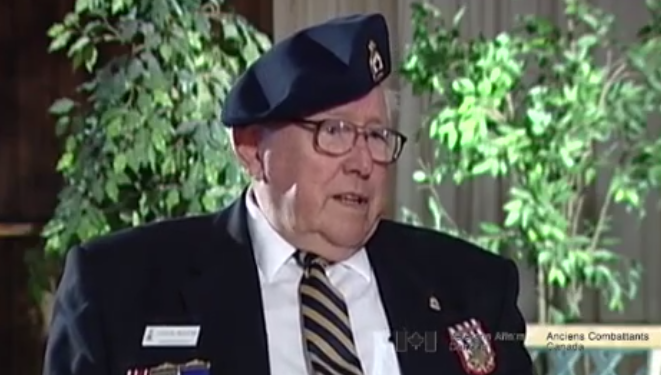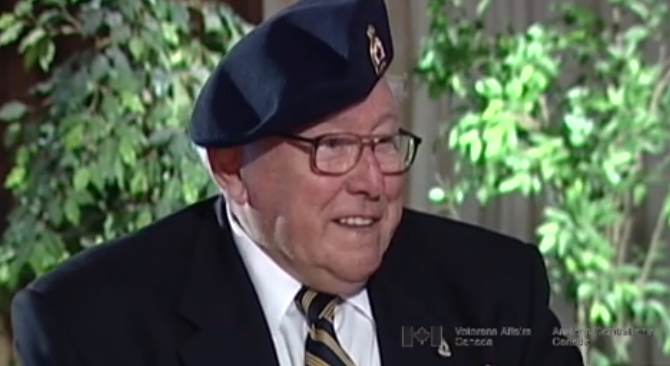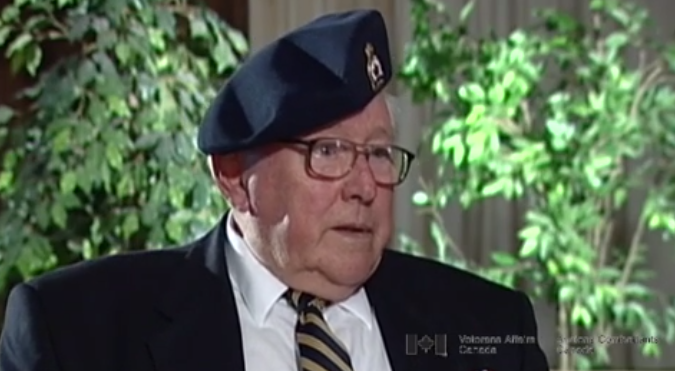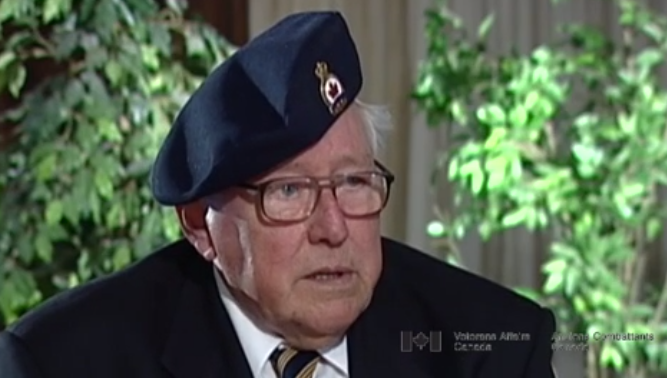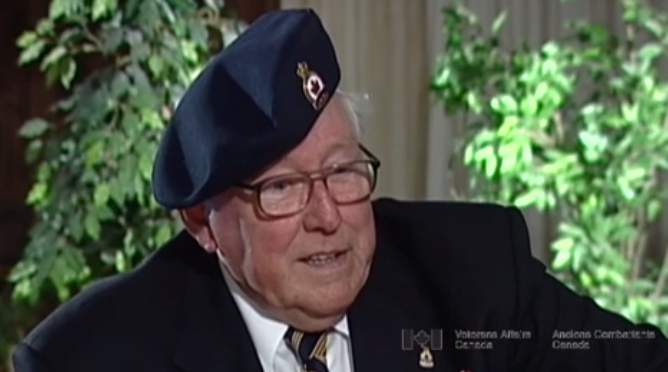Everything was cleaned out.
Heroes Remember
Everything was cleaned out.
Transcript
We lived in the town, it was a town or a city, what you'd call
it now, and we have an alley-way between the two houses. And
the Germans were across the channel and they were keeping the
fire through the channel so we couldn't get out of the house.
The kind of alley-way, you know, what we want was in the house.
And we know that these other paratroopers coming down and the
planes coming down. I saw that all. And then five days later
they bombed Rotterdam so badly it took the whole inner-city out,
and that made it . . .see, Holland didn't have a big enough
army for that kind of project, you know. The tanks and stuff
that was around at that time, you know, by the time Germans came
in. Well you couldn't get out of the house later on in the last
few years, as soon as I was in the age that they'd pick you up
and ship you off to Germany. So I slept for nine months between
the ceiling. See in the old houses, the ceiling . . . between
the floor and the ceiling there was about three feet space and
six of us, we slept there for nine months. And one day, we
were, I was in the house, at home from the neighbours and the
Germans came in and to pick me up and my mother up and put us
both in jail. And my dad was not home and they waited for him
and they picked him up too and put him into jail too. And he
was locked up for six seeks. Mother and I, we stayed for two
weeks and at five o'clock they told us to go home. And we have
to walk home and that's, might be seven, eight kilometres.
I never run as fast as I can that night. But then we were
scared, mother and I, to go home so we went to the neighbours.
We came home the next day, checked the house, everything was
cleaned out. The furniture was there, but the food, and there
was a bin full of coal . . . everything was cleaned out.
Dad has trucks, they were gone. I met some of them old guys up,
we were in the trucking business that time, that we, at the
factories, you know and you talked to them. I have guys
spoken, he says "We don't want it. We want to go home, we want
to go home." But they can do nothing, there's nothing to say,
you know. But the SS was the biggest problem. Oh they, if you
did something wrong, they was "Poot" and you got shot dead.
I know guys in our neighbourhood, they were in the underground,
sent to pick them up and they took them down to (inaudible) to
shot them all. You keep your mouth shut and don't say nothing.
Don't say nothing to one of them guys or it was ball game over.
They shot everybody what, what, that didn't suited. And you were
in a car, you couldn't go out the house you know.
It was all limited.
Description
Mr. Beukema offers some perspectives on the occupation of his home town by the Germans
Laurens Beukema
Mr. Beukema was born in Forbruk, Holland, in 1927. He and his family lived through the hardships caused by the German occupation and the subsequent joy of liberation by the Canadian army. After serving overseas for three years in the Dutch Army, Mr. Beukema and his wife moved to Canada. Although he visits Holland often, Mr. Beukema is proud to claim Canada as his home.
Meta Data
- Medium:
- Video
- Owner:
- Veterans Affairs Canada
- Duration:
- 3:25
- Person Interviewed:
- Laurens Beukema
- War, Conflict or Mission:
- Second World War
- Location/Theatre:
- Holland/Netherlands
- Branch:
- Army
Related Videos
- Date modified:



